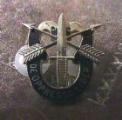I do know from harsh experience they will believe little or nothing you say, take all you offer, ask for more and change little if at all. Many will even change to harden their opposition to you...
Not to mention that your opponents, generally decentralized with far less bureaucracy and no over cautious senior people to placate plus the ability to use terror and intimidation will generally out-influence you...

















Bookmarks